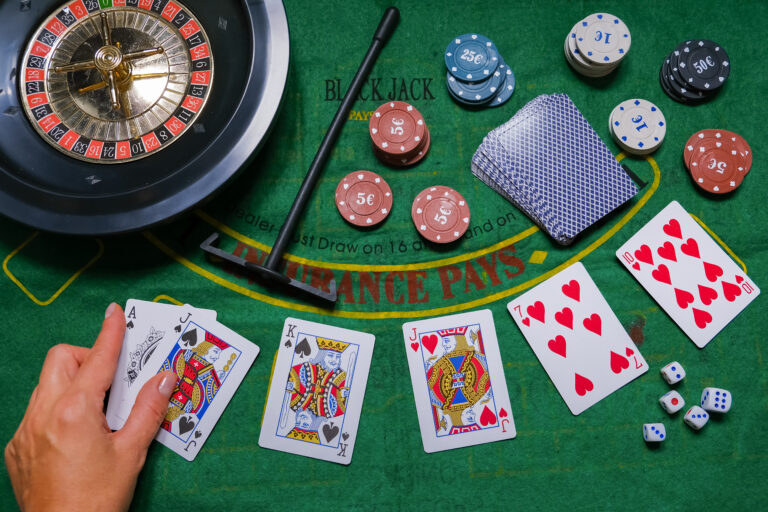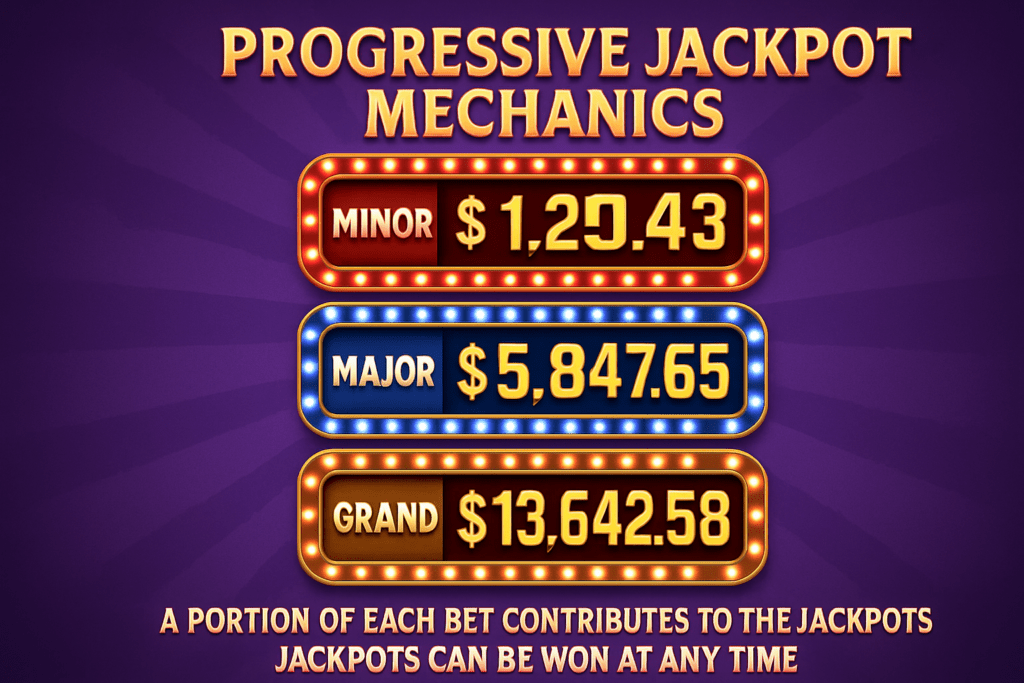What Are Jackpot Game Odds, Really?
- Cut through the hype: get the real story behind your chances.
- Quick intro to what “odds” mean in the world of lotteries, slots, and sweepstakes.
- Introduce the primary keyword: jackpot game odds.
What Are Jackpot Game Odds, Really?
Let’s cut through the noise. Every lottery ad, slot machine splash screen, or sweepstakes hype reel is built around one thing: the promise of a big win. But most only hint at the long shot you’re actually facing. The real story? Jackpot game odds are cold, uncompromising numbers that spell out just how likely (or unlikely) your dream payout is.
So, what do “odds” really mean in gambling? In its simplest form: your odds are the ratio between winning outcomes and all possible outcomes. In a lottery, that means the odds reflect how many ways you can pick the right numbers, versus all the ways you could get it dead wrong. On a slot machine, odds are about how the symbols align, and how many chance combinations sit between you and that flashing jackpot.
Jackpot game odds come up everywhere—from lottery tickets at the grocery store, to the “spin now!” app on your phone. No matter the setting, they’re the hard facts hiding behind the glitter. And understanding them isn’t just for math nerds; it’s the easiest way to know exactly what game you’re playing—and how much of it is luck versus pure fantasy.
Basic Terms: How Do Odds Work?
Let’s not overcomplicate it: odds are just a way of showing how likely (or unlikely) something is to happen. In jackpot games, that “something” is usually your shot at hitting the big prize. Odds are often shown as ratios—like 1 in 292,201,338 for certain lotteries—which basically means one win for every almost-300-million tickets sold. “Probability” is just another word for your chances of winning, written as a percent or decimal. If your chances are 1 in 10, the probability is 10%.
Now, about odds evaluation: that’s the process of weighing how tough—or easy—it really is to win. Casinos and lotteries use something called random number generation (RNG) to make sure every ticket, spin, or scratch-off is totally unpredictable. That’s why “lucky numbers” are mostly fun, not fact.
So, keep it simple. Odds show ratios, probability gives you the percentage. Both are ways to measure your chances of winning, and neither is usually in your favor. But understanding these basics is how you start playing smarter, not just harder.
Game Odds Breakdown: Comparing Top Jackpot Games
Let’s put some numbers to those hunches about which games are “hardest to win” and which might actually give you a shot. Here’s a straight-up game odds breakdown for big-name jackpots you’ve probably seen before.
State Lotteries: Most state lotto draws (think Powerball, Mega Millions, or your state’s version) are infamous for their long odds. For example, the chances of winning the Powerball jackpot sit around 1 in 292 million, and Mega Millions isn’t much better at roughly 1 in 302 million. Local or “pick 3” games will usually have shorter odds — sometimes as good as 1 in 1,000 — but note the prize drops accordingly.
Progressive Slots: Those glitzy casino slot machines with eye-popping jackpots work differently. Every spin can theoretically win, but the odds are still rough: usually somewhere in the 1 in 50 million to 1 in 200 million range for the biggest networked progressives. The “game odds breakdown” here depends on the machine and the casino, but don’t expect great “chances of winning” big.
Raffles: These are a little friendlier. If a raffle issues, say, 10,000 tickets and you own one, those are simple, fair odds: 1 in 10,000 to win. No tricky math, no hidden house edge. Raffle odds are usually your best shot at a life-changing prize, but the payouts are smaller and less frequent.
So what’s the winnability ranking, from best to worst?
- Raffles (because you mathematically know your exact odds)
- State/local “pick 3” or “pick 4” games (decent odds, smaller jackpots)
- Progressive slots (jackpots can be big, but odds are astronomical and hard to verify)
- Big national lotteries (huge money, but your chances of winning are vanishingly slim)
In short, when it comes to jackpot game odds, the more spectacular the payout, the smaller your chances of winning. If you care about “chances of winning” and not just dreaming, raffles and smaller-state games should be your focus. If you’re chasing a story-worthy windfall, you’re in line with millions of others crossing their fingers for that one-in-a-hundred-million shot.
Why Do the Odds Vary So Much?
Here’s the plain truth: jackpot game odds swing wildly depending on a few big-league variables. First, more players means tougher odds. Take the mega-sized national lotteries—millions of hopefuls, epic cash piles, but your chances? Lower than your chances of being struck by lightning twice in a day. Local raffles or smaller prize draws often have way better chances because there are fewer tickets in the hat.
Next, let’s talk number pools. If a lottery makes you pick 6 numbers from 1 to 49, that’s one deck of possible combos. But if you’re picking 5 numbers plus a “Powerball” from a separate drum, the combinations explode. More combinations mean your slice of the pie gets thinner.
Ticket or entry sales matter too. Some jackpots grow as more people buy in, pulling more entries into the mix and shifting the odds as the jackpot swells.
Bottom line: game designers balance out prize size and frequency by tweaking these factors. Bigger payouts require longer odds, smaller games offer better chances. Don’t sweat the math—just remember: more players, bigger pools, and fancier formats make your odds steeper. That’s the behind-the-scenes reason why not all jackpot games are created equal.
How Technology and Game Design Affect Your Chance
You can thank (or curse) technology for how random jackpot games really are today. Gone are the days when it was just a bingo cage or a physical lottery drum. Now, almost every online jackpot game relies on a Random Number Generator (RNG)—a fancy bit of code that spits out unpredictable results every millisecond. This tech makes sure each play is independent and truly random. There’s no “hot streak,” no “waiting your turn”—your chances of winning stay the same every single spin or ticket, no matter what.
Game design matters too. Developers control not just the jackpot size, but how often you even have a shot at winning. Want huge million-dollar prizes? Fine, but they crank up the number pool or layer on more reels, making the odds evaluation even tougher for players. On the flip side, games with smaller jackpots tend to throw you a bone more often. If you like the gritty details, technology’s impact on jackpots walks through how those RNGs and algorithm tweaks keep things fair, but really, they also keep things hard.
Bottom line: algorithms run the show, not you. The “randomness” isn’t just buzzwords—it’s a wall between you and any pattern or prediction. That’s the tradeoff of tech-designed games: better fairness, less chance for system-beating strategies.
What Happens After Winning Millions?
Winning a life-changing lottery jackpot is every player’s dream, but few are prepared for what comes next. The sudden influx of wealth can bring excitement, but also a wave of challenges as winners must navigate complex financial and social changes.
The Financial Reality of Winning
Many winners find themselves overwhelmed with financial decisions almost immediately, including:
- Taxes and Legal Obligations
- Managing a large portion of the winnings for taxes is crucial.
- Lack of planning can lead to legal troubles.
- Investment Decisions
- Some winners hire financial advisors to ensure long-term security.
- Others struggle with reckless spending, potentially depleting their fortune.
- Budgeting for the Future
- Without proper money management, even the largest jackpots can disappear.
A Lifestyle Overhaul
A sudden change in fortune often leads to significant lifestyle adjustments:
- Luxury Purchases
- Winners often invest in mansions, sports cars, and extravagant vacations.
- Social Dynamics
- Reappearing friends and distant relatives create social pressures and difficult choices.
- Some winners prefer a low-profile lifestyle to avoid media and public attention.
Adjusting to life with newfound wealth is complex and involves managing both personal desires and external expectations.
Giving Back and Creating a Legacy
For many winners, wealth becomes an opportunity to make a positive impact. Their contributions can include:
- Charitable Contributions
- Donations to charities and community projects are common.
- Educational Support
- Funding scholarships or launching educational initiatives to aid future generations.
- Business Investments
- Investing in businesses that create jobs and stimulate economic growth.
Some lottery winners transform from mere players to philanthropists, using their wealth to leave a lasting legacy. However, without careful planning, some may experience a financial downfall, underscoring the importance of smart financial management.
What Happens After Winning Millions?
Winning a life-changing lottery jackpot is every player’s dream, but few are prepared for what comes next. The sudden influx of wealth can bring excitement, but also a wave of challenges.
The Financial Reality of Winning
Many winners find themselves overwhelmed by financial decisions:
- Managing Taxes: A significant portion of winnings often goes to taxes, and failing to plan can lead to legal troubles.
- Investing vs. Spending: Some winners hire financial advisors to ensure long-term security, while others struggle with reckless spending.
- Budgeting for the Future: Without proper money management, even the biggest jackpots can disappear quickly.
A Lifestyle Overhaul
Lifestyle changes occur almost immediately:
- Luxury Purchases: Mansions, sports cars, and extravagant vacations become instantly affordable.
- Social Pressure: Long-lost friends and distant relatives often reappear, expecting a share of the winnings, creating tension and difficult choices.
- Privacy Challenges: Some winners struggle with unwanted media attention and public scrutiny, so they choose a low-profile life to avoid the pressure and attention that come with sudden wealth.
Giving Back and Creating a Legacy
Beyond personal wealth, some winners use their fortunes to make a difference:
- Charitable Donations: Many winners donate to charities and community projects.
- Investing in Education: Fund scholarships or support education initiatives.
- Business Investments: Invest in businesses to create jobs and opportunities.
Some lottery winners go from players to philanthropists, proving that wealth can be used to leave a lasting impact. Stories of winners funding scholarships, launching nonprofits, or revitalizing struggling towns are just as common as tales of financial downfall. The way winners handle their newfound riches determines not just their own future, but also the legacy they leave behind.
Bottom Line: Play Smart, Play Aware
Here’s the unvarnished truth: jackpot game odds are never stacked in your favor. That’s the entire business model. But—knowledge changes the game. Knowing what you’re up against, how odds are calculated, and which games offer the most reasonable chances isn’t just trivia; it’s power.
If you treat every ticket or bet as a tiny entertainment expense rather than a plan for riches, you’ll play with your eyes open. Skip the hype. Use what you now know about odds, probability, and game design to pick what actually fits your style—or to walk away when the numbers just don’t add up. Luck is random. Smart play isn’t.













































































































































































































































































































































































































































































































































































































































































































































































































































































































































































































































































 Molly Depriestano, the founder of Jackpot Rush Empire, established the platform with a clear vision of creating a trusted space for lottery enthusiasts. With a passion for both the excitement of jackpot games and the importance of responsible play, she built the site to deliver reliable lottery results, engaging stories of big winners, and practical gambling safety guidelines. Her leadership ensures that Jackpot Rush Empire not only celebrates the thrill of winning but also promotes awareness and balanced participation in the world of gambling.
Molly Depriestano, the founder of Jackpot Rush Empire, established the platform with a clear vision of creating a trusted space for lottery enthusiasts. With a passion for both the excitement of jackpot games and the importance of responsible play, she built the site to deliver reliable lottery results, engaging stories of big winners, and practical gambling safety guidelines. Her leadership ensures that Jackpot Rush Empire not only celebrates the thrill of winning but also promotes awareness and balanced participation in the world of gambling.
